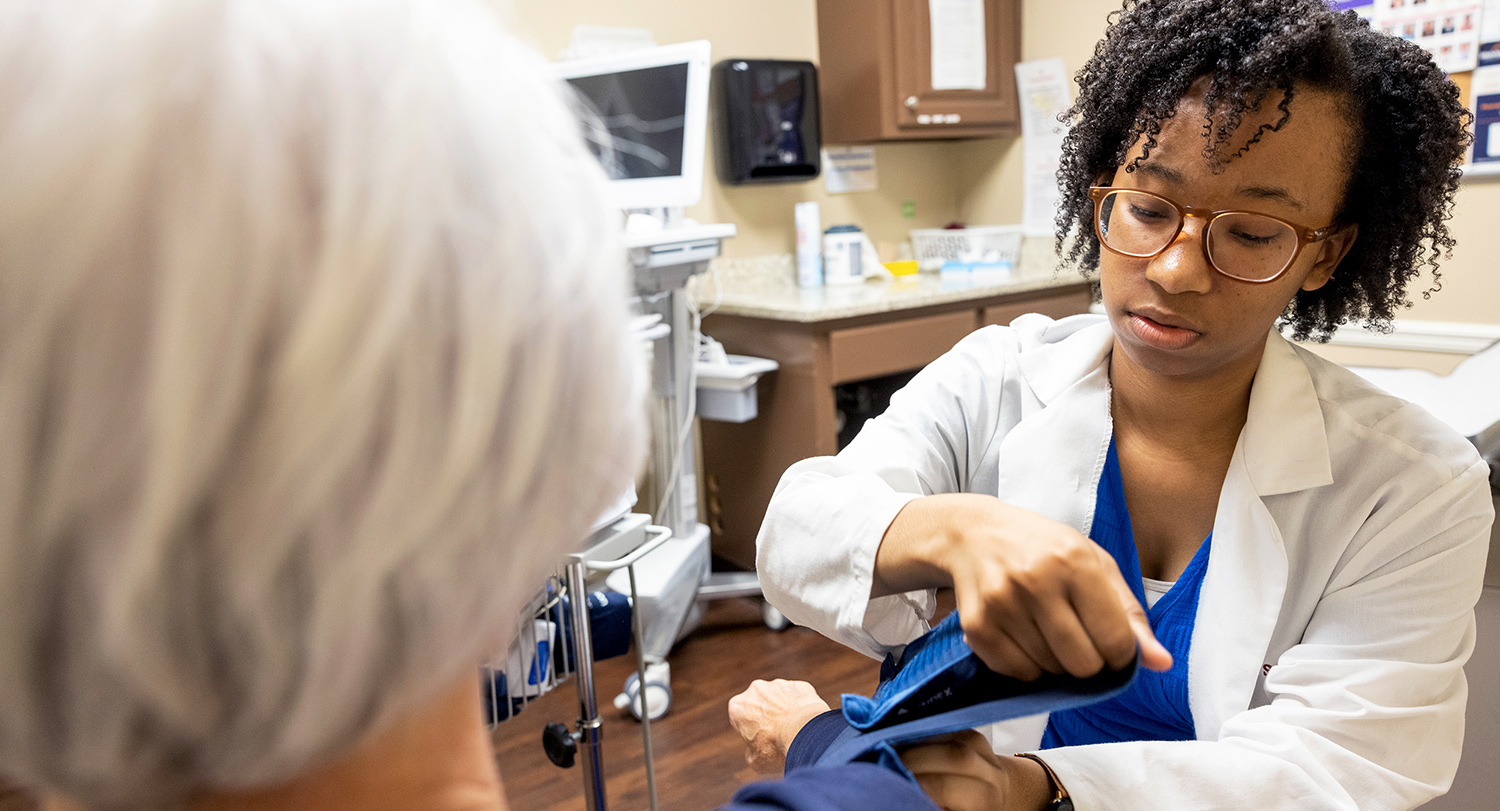
May is High Blood Pressure Education Month, and May 17 is World Hypertension Day every year.
USC’s College of Pharmacy is raising awareness that pharmacists can help patients and their medical providers manage high blood pressure, also known as hypertension. It is a leading factor in heart attacks, stroke and chronic cardiovascular issues.
Studies and research projects demonstrate that pharmacists can help decrease heart health risks by providing health coaching services to adults with hypertension.
Patti Fabel is a clinical associate professor at USC's College of Pharmacy and executive director of the Kennedy Pharmacy Innovation Center. She has insight of South Carolina’s need for hypertension care from her involvement in a statewide pharmacist-led hypertension coaching program.
What’s at stake: Approximately half of U.S. adults are diagnosed with hypertension or are taking prescription medications to treat it, according to Pharmacy Times.
- Hypertension typically does not cause any symptoms, even when blood pressure is elevated significantly.
- Uncontrolled hypertension can lead to significant damage to the heart, blood vessels and kidneys.
What pharmacists can do:
- Pharmacists are a reliable resource for guidance on selecting safe over-the-counter medications for common pain and cold conditions without impacting a patient’s blood pressure.
- Pharmacists can also help patients avoid medications that might lower blood pressure, which can lead to dizziness or falls.
- Pharmacists can educate patients on accurate blood pressure monitoring steps. Patients' self-monitoring of blood pressure at home is preferred as it yields higher treatment success.
- Pharmacists can support patients in taking their prescription medications as directed.
Lifestyle choices to lower blood pressure: These steps can play a critical role in hypertension management and improving overall cardiovascular health.
- Consume less than 1,500 mg of salt per day.
- Aim for a healthy weight.
- Get at least 30 minutes of exercise most days of the week.
- Adhere to medical prescriptions.
- Stop using tobacco products.
What she’s saying: “Pharmacists have the capacity to optimize patient care for hypertension. As more individuals work to get their hypertension under control, we want the public to know the facts and that these goals are supported in places where they live, learn, work and play.” — Patti Fabel
To lower blood pressure, know your numbers: Blood pressure is the force of your blood pushing against the walls of your arteries. Your blood pressure is recorded as two numbers:
- Systolic blood pressure (the first number) – how much pressure your blood is exerting against your artery walls when the heart contracts.
- Diastolic blood pressure (the second number) – how much pressure your blood is exerting against your artery walls while the heart muscle is resting between contractions.
Palmetto impact: With 37.8 percent of South Carolina adults who report being told that they had high blood pressure by a health professional, the state ranks at 42nd in the country.
- South Carolina’s hypertension mortality rate was 11.2 deaths per 100,000 residents in 2021, according to the Centers for Disease Control and Prevention.
USC’s Health Watch series helps readers deepen their understanding of the latest health recommendations and news through the expertise of our clinical faculty.